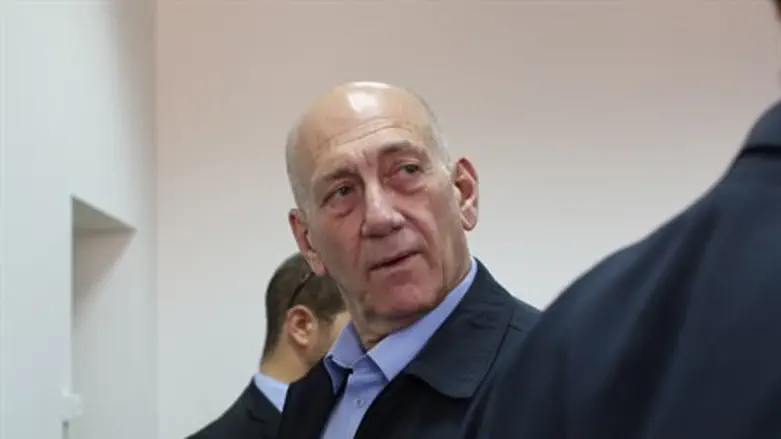
The Jerusalem District Court on Monday found former Prime Minister Ehud Olmert guilty of fraud and breach of trust in the Morris Talansky case.
The judges noted that new evidence provided to the court disproves Olmert's version of events, according to which he claimed the money involved in the case was "political money" and not a personal bribe.
All three judges ruled unanimously in finding Olmert guilty. His sentence will be determined on May 7.
The former prime minister was accused of taking part in a corruption scandal, receiving hundreds of thousands of dollars - with a large portion of it being passed in envelopes - from American Jewish businessman Morris Talansky, back when Olmert was Jerusalem Mayor and Minister of Trade and Industry. In return for the bribes, Olmert was meant to give Talansky preferential treatment in advancing his business interests.
The Talansky case returned to the district court during a petition against Olmert's acquittal at the court, at which point the state submitted new evidence and in response the judges decided to re-open the case.
Supreme Court judges ordered the district court to hear the new evidence and make a new ruling based on all of the collected evidence.
The prime component of the new evidence is a set of recordings provided by Olmert's former aide, Shula Zaken, of the two talking. In the conversations Olmert apparently connected himself to the very acts he denied committing in court.
Zaken submitted the evidence as part of a plea bargain in a separate case, the infamous Holyland corruption scandal, in which she received a considerable lightening in her sentence in return for her cooperation against Olmert.
While the central actors in the Holyland scandal were sentenced to between three and eight years in jail, with Olmert himself receiving six years, Zaken was let off with 11 months which she has already completed after the sentence was reduced by a third.